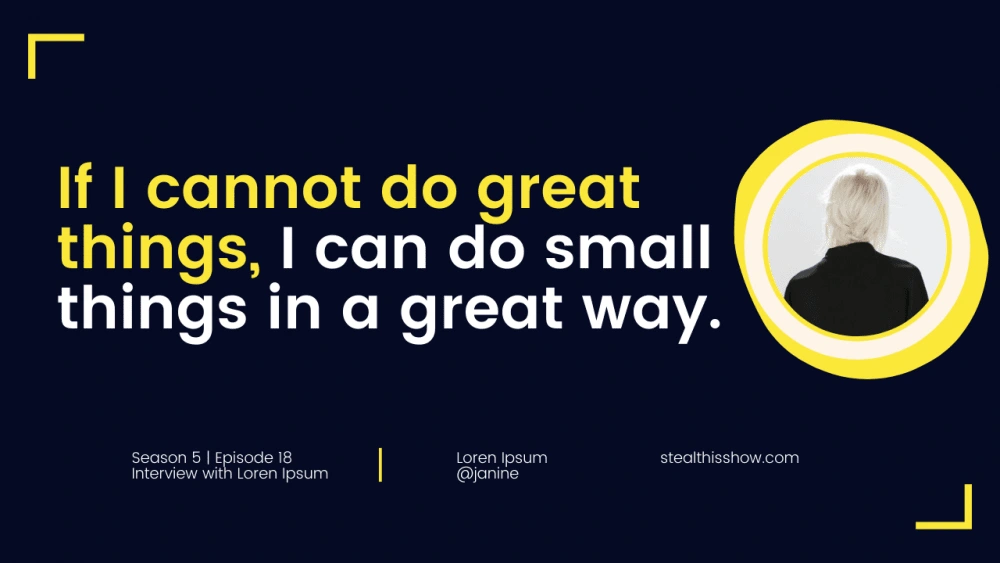How to Turn A Podcast Into a 4-Hour Workweek Operation by using

I believe that one of the keys to growing your podcast or any other endeavors is learning how to delegate and I noticed that the majority of podcasters have no idea how to do that.
Learning how to delegate the minutiae and then focusing your efforts toward things that bring big results is a much better strategy than doing it all.
Also, because of the pandemic situation we’re currently in, hiring remote workers is becoming more relevant so I decided to share my knowledge in this area. This can be applicable to other areas of your life or other businesses too so, read on!

My experience
When I was just starting out as a VA, I worked with numerous individuals and businesses where they had no idea about managing a remote professional. It’s understandable because I’m usually their first hire.
There’s no clear structure on how to operate, and everything is just a pure mess. I felt very unproductive too and we’re not getting the results we need. They just ask me to do something, and then I try my best on doing that task, and usually, that’s not enough.
Even though I used to solve differential equations and finished an electrical engineering degree in my country, I felt dumb when I’m executing some basic tasks because it’s sometimes not up to the standards of the business.
As I learned stuff and eventually became good at it, I got the chance to be promoted to manage a remote team for a small business in California. I encountered another dilemma:
How can I make sure that the remote team works on our company’s standards? How can I make sure that they’re productive? How do I keep them motivated? And tons of other questions…
So I did my research, spent countless hours browsing the internet, reading books, and then I devised a solution based on my previous experience as a Virtual Assistant myself.
The problem

I was approached by an award-winning filmmaker who started out a podcast. He invited me to work as a VA and as I learn stuff, I created a remote system for the podcast.
We interview authors and well-known individuals in cyberspace. He’s really good at what he does but he needs a little help on the podcast so that he can focus on growing the podcast or working on other stuff, such as new films.
He wanted me to work on scheduling guests, managing his social media, managing his Patreon, and the nitty-gritty of running a podcast such as publishing the episode, coordinating with the editor, and much more.
Also, there was no system in place so he just taught me everything through video calls. It took quite some time but I became good enough but good enough is usually not enough. We, humans, are prone to mistakes, and it’s normal. We have limited attention span and energy. The best we can do is to create systems to mitigate the risk of mistakes.
The Solution

This is the step-by-step process that we did on our podcast and feel free to edit the system or set it up to your needs.
1. Write clear goals and decision-making guidelines.
The first thing we worked on was creating the 2 core documents. I learned this from a book called Work the Systems by Sam Carpenter. It consists of the Strategic Objective Guidelines, it’s the document that establishes the direction and goals of the company as well as its values and personality. Every procedure and procedure should conform to the Strategic Objective Guidelines.
The second document is the General Working Principles, it’s the team’s ‘guidelines for decision making’. It should state what the VA should do when they’re put in a situation to make a decision. It should also include the work culture of your company. You can see their template on Work The System Book’s website and you can edit it to fit your needs.
2. Document every task.
The next step is to create a collection of Standard Operating Procedures for every task. It consists of step-by-step written instructions on how to execute each task. This will make sure that all tasks are executed consistently with the same standard and this will reduce the rate of error significantly. Humans are prone to mistakes because of our limited attention span, especially in this modern era and we also have limited energy. SOPs are used to ingrain a habit to your VA and after executing the same task by following the SOP strictly and sequentially, it’ll be like an automatic thing for them when they’re executing the task. Without an SOP, even a top-quality VA who’s tired and hasn’t slept well will make mistakes but having the procedure ingrained in them will reduce the mistakes significantly.
After defining your strategy and summarizing your operations, you should be able to break it down into smaller tasks. We broke down the podcast operation into 30+ tasks. For instance, one of our strategies to grow our social media account is by posting audiograms, posting relevant articles, and engaging with the relevant audience so we created SOPs for each of those tasks.
We created SOPs for tasks such as on How to upload the episode to Patreon, editing buffer articles, Writing guidelines on scheduling guests, and much more. We wrote specific instructions for the VA, the editor, and the host. We documented every single task.
I highly suggest using Google Docs and TechSmith Capture for creating SOPs. Also, I noticed that this task is very time-consuming and if you don’t have time to do this, go ahead and record yourself doing those tasks, write instructions on how you’d like to structure your SOPs, and then hire a VA to do the documentation for you. I’ll write another post soon on how to hire the best VA for your needs.
3. Set-up the Virtual Assistant’s Daily Routine
After writing the core documents and the collection of Standard Operating Procedures, we figured out a way to keep it all together. This was a hard part for us until we stumbled upon Basecamp. It’s a project management tool but we set it up for operations. You can use any other tool that you like as long as you can set recurring tasks or something similar.
The first thing we need to do is to create the VA’s daily task routine. It lists the tasks that the VA needs to do every day for the podcast. It also includes the time or time due to each task. Each task has a link to its Standard Operating Procedure along with other stuff relevant to the task. The VA will just simply check off the task after...
I wrote the full case study here on Reddit:
Check it out on Reddit. It became the top post of the week on r/Entrepreneur!
Like this project
Posted Mar 13, 2024
How to Turn A Podcast Into a 4-Hour Workweek Operation
Likes
0
Views
11
Tags


